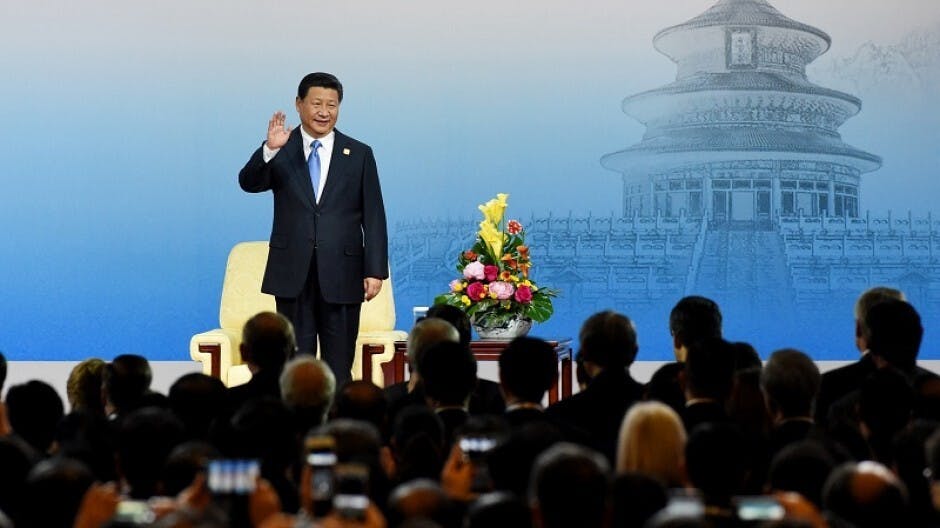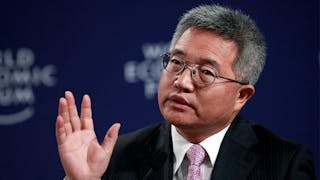(中文摘要:坊間很多有關中國改革的討論,都忽略了一個基本問題:習近平主理改革的重中之重,是在於重新鞏固中國的社會契約,使共產黨的管治得以維持下去。很多論者認為,在結構性改革的糖衣背後,中國的政治開放進程正實際上在「開倒車」。這未免是「見樹不見林」。)
The biggest challenge underlying of President Xi Jinping’s reform agenda is to rebalance China’s social contract to enable the Communist Party to survive. Most the discussions about China’s reform have failed to realise this linchpin of China’s structural reform programme. Instead, many analysts have concluded that China’s was going back on its political liberalisation by re-establishing suppression under the guise of structural reforms. This is short-sighted.
Restructuring the social contract: Xi’s vision
At the heart of President Xi Jinping’s reform vision is the need for strengthening the foundations of the Communist Party’s grip on power. To do that he needs to reconstruct the nation’s social contract which Beijing has been using to govern the country since economic reform started in 1978. For the people, the deal is for the Party to retain a monopoly on power in exchange for economic freedom that has delivered unprecedented economic growth and poverty reduction. For the Party, the “red-line” is anything that it perceives as a threat to its survival.
The 2008 Beijing Olympics, the 2010 Shanghai World Exhibition and more recently the initiatives to set up the Asian Infrastructure Investment Bank and to launch the “One Belt One Road” investment programme were designed by Beijing to warm the hearts of Chinese citizens, as well as impressing the world, while feeding its people with a rich diet of nationalism.
However, things have changed, leading to the breakdown of the social contract. Years of lopsided economic growth has deepened income and wealth inequality, creating a big “economic divide” between the rich and the poor. This has raised the awareness of the grass-roots population that corruption and incompetence of local officials are only a small part of the problem that bars them from sharing the benefits of economic reform. The major problem roots in the higher policy level. This has, in turn, prompted the intellectuals and the wealthy to take more interests in politics and the reform process, either to fight for their interests or to exploit the rent-seeking opportunities to enrich themselves.
President Xi has seen quite clearly that the social contract must be brought back to balance for the Party to survive. He and the Party are very conscious of the “Gorbachev syndrome”. When Mr. Xi hands over power to the next generation of Chinese leaders in 2023, the Communist Party will have ruled China for 74 years, exactly the same length as the rule of the Communist Party of the former Soviet Union before it disintegrated.
Signs of China’s social contract fracturing are ample. These include yawning inequality between rich and poor, rampant corruption, life-threatening environmental damages and human rights abuses.

Reforms difficult to implement as vested interest resist
Thus, the key objective of President Xi’s administration is to reconstruct this social contract. Although this is a question of life and death for the Party, reforms will be much more difficult than ever before because they result in winners and losers. The losers are the vested interests that have benefited from the past economic liberalisation that has created the current rent-seeking and corrupt system. They will endeavour to block changes that will take away their privileges. They include state-owned enterprises, state-owned banks, local governments, Party officials, many government ministries and interest groups that have cozy relationships with the powers.
Mr. Xi has demonstrated a clear determination to change. But the reform process will require a complex legislative and implementation process, which could threaten the Party’s viability. For example, structural changes that improves economic efficiency will take away subsidies from the state-owned enterprises (including the requirement to pay higher dividends), force state-owned banks to operate on a more commercial basis and destroy rent-seeking opportunities.
This implies that deep structural changes that will clash with the old forces and vested interests will not (and cannot) be implemented quickly. One of these notable deep reforms is the draconian one-child policy. It has received much attention and is certainly most welcome. This reform will allow couples, with one partner being the only child in his/her family, to have two children.
In reality, this only applies to urban dwellers, since most rural families can already have two children. And urban dwellers with both partners being the only child in their respective families are also already able to have two children.
With the reform, the Family Planning Bureau expects an additional 1.5 — 2.0 million births a year, raising the current annual new birth rate to about 18 million. With a population of 1.35 billion, the impact of the reform on population growth is negligible. It is not hard to see why. The one-child policy is backed by the powerful family-planning bureaucracy which employs 500,000 full-time and 6 million part-time workers, and collects RMB17.5 billion (USD2.75 billion) in fines a year (in 2013). This agency fears job losses if the one-child policy were abolished and, hence, has put up strong resistance to the reform.
Hukou: another episode of dilemma
Beijing’s reform blueprint also vows to reform the hukou (household registration) system, which denies internal migrants access to social services outside of their home towns. This system has resulted in gross inequities and social problems as young children often have to be raised in their home country villages by their grandparents while their parents have gone to work in the urban centres as migrant workers. In practice, it has relaxed the internal migration rules only for small and medium-sized cities.
China’s wealthy and middle class in the big rich coastal cities have put up strong resistance to the reform as they do not want their hospitals and schools clogged up with country bumpkins. Local governments have also resisted the reform because they lack the necessary funds for building the infrastructure to accommodate the new comers.
Ultimately, the project of rebuilding China’s social contract involves some letting go on the economy and society on one hand and exerting more political control, as recent arrests testify, on the other. Beijing’s anti-corruption campaign aims at cleaning up the system at the roots in order to cement the country together again.
Playing into Mr. Xi’s hands are the developments in the US and other developed countries in recent years which have undermined the moral authority and attractiveness of these systems – developments from the global financial crisis to the US government spying revelations. This has indirectly strengthened the Chinese government’s social contract by showing the dark side of the advanced democracies that, presumably, would help strengthen Mr. Xi’s control to push through deeper reforms in the coming years.








































